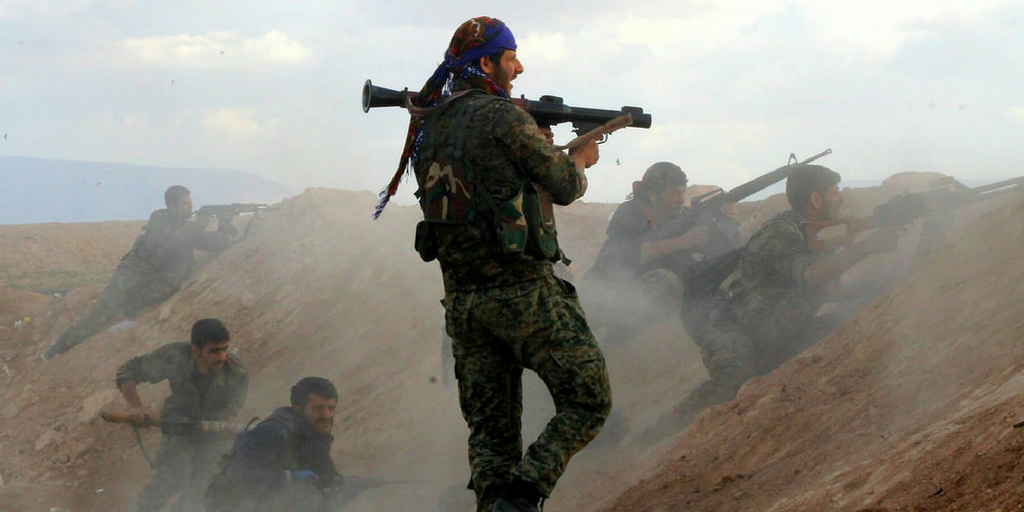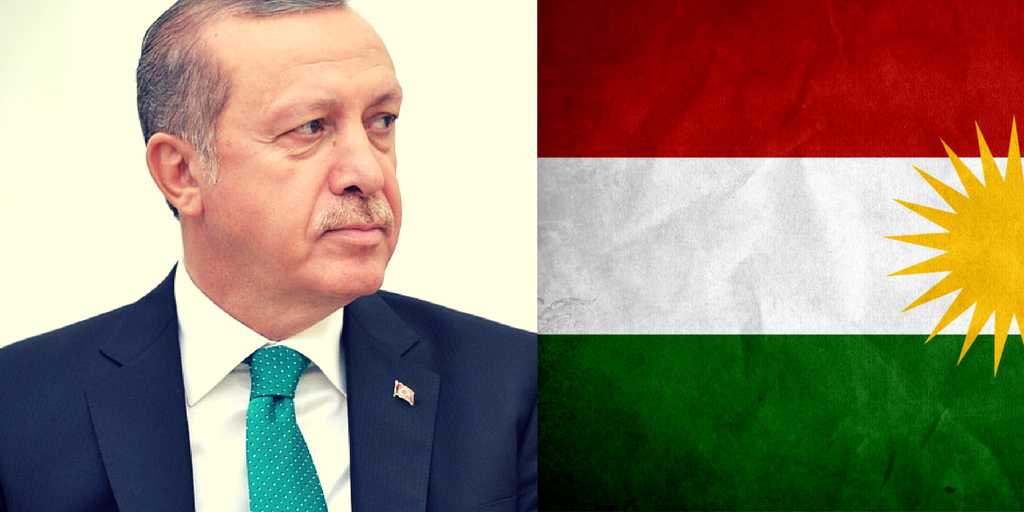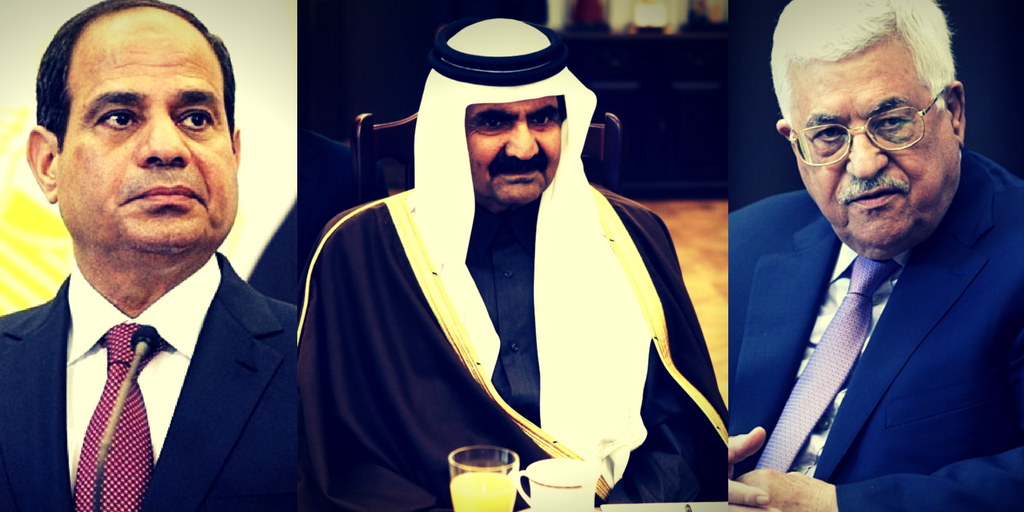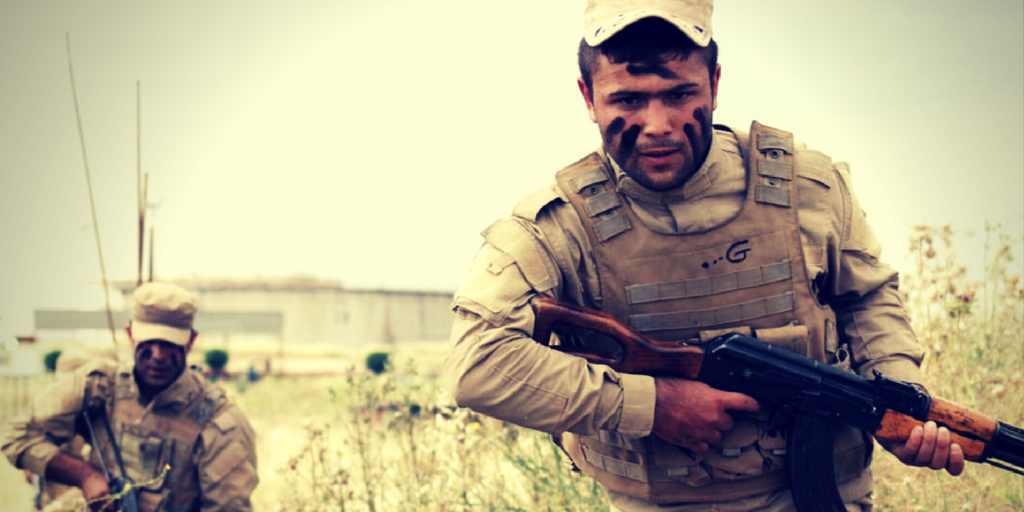With the Kurdish Independence referendum for the Kurdish Regional Government (KRG) in Iraq coming on September 25th and Mosul now back in the hands of the Iraqi National Armed Forces due to the Kurdish Peshmerga, the international players are nervous over what the implications are for the region and the world if an independent Kurdistan truly rises.
The United States has urged the KRG to hold off on the referendum. The US Congress has even warned the KRG by threatening to withhold funds. The US Congressional Armed Services Committee released their annual National Defense Authorization Act. The language relating to the KRG appears problematic for an indpendent Kurdistan.
“The committee notes that funding provided to the [KRG] is to enhance Government of Iraq-KRG cooperation and support a unified effort to counter the Islamic State of Iraq and the Levant (ISIL),” the draft National Defense Authorization Act reads. “Such funding should be contingent upon KRG participation in the government of a unified Iraq and on their continued good faith cooperation in the anti-ISIL campaign.”
Although the USA has viewed the Kurdish Peshmerga as integral to the victory over ISIS it appears to be backtracking on backing an independent Kurdistan. With Mosul liberated, the Kurdish Peshmerga is less needed. An independent Kurdistan will create friction if not all out war with Turkey as well as a war with Bagdhad.
PM Al-Abadi arrives in Mosul to announce its liberation and congratulate the armed forces and Iraqi people on this victory pic.twitter.com/bUtkj7z88A
— Haider Al-Abadi (@HaiderAlAbadi) July 9, 2017
This was part of the show of strength by the Iraqi Prime Minister Haider Al-Abadi as seen by his visit to a liberated Mosul.
Experts quote the Iraq Constitution in pushing back on the illegality of Kurdish independence. Article 1 of Iraqi constitution states: “The Republic of Iraq is a single federal, independent and fully sovereign state in which the system of government is republican, representative, parliamentary, and democratic, and this Constitution is a guarantor of the unity of Iraq.”
Keeping the above in mind, Kurdistan has for years been moving towards independence. The KRG believes it is not only entitled to independence, but territory that the Peshmerga gained by fighting ISIS over the last few years. One such place, Kirkuk, is a strategic Kurdish and Arab city, now fully in the hands of the Peshmerga. The referendum is being held to include Kirkuk in the future Kurdish state. Newly liberated Mosul is also a mixed Kurdish Arab city.
What Does Washington Want?
The USA has for years used the threat of an independent Kurdistan to push back on a chaotic central Iraqi government. Not only that, the Peshmerga has proven itself like its counterpart the SDF in Syria to be the best fighting force on the ground. At the same time the US has played both sides by trying to hold the Kurds back from going all the way. This they fear will spark a regional war with Turkey, while plunging the rest of Iraq into chaos.
With this in mind, US Secretary of State Rex Tillerson travelled to Turkey to discuss Ankara’s impending invasion of Syrian Kurdistan in Afrin as well as the coming KRG referendum on independence.
Secretary Tillerson met President of Republic of #Turkey @RT_Erdogan to discuss bilateral issues & coordination in the fight against ISIS. pic.twitter.com/rv9ZRsLuMG
— ABDIstanbul (@ABDIstanbul) July 10, 2017
With Washington trying to slow down the drive towards indpendence, while at the same time giving tacit support for such a movement, the Kurds feel emboldened in their drive for a free Kurdistan.
Israel Already Backs an Indpendent Kurdistan
In 2014, Benjamin Netanyahu, Israeli prime minister, stated that the Kurds were “worthy of their own independence”. Also in January of 2016, Ayelet Shaked, justice minister of Israel, called for an independent Kurdistan. She also expressed that Israel had to openly call for the establishment of a Kurdish state that separated Iran from Turkey, one which would be friendly towards Israel.
Israel has supported Kurdistan covertly, being the regions largest buyer of oil.
September 25th is coming. With the US once again not clear on its attitude to a independent Kurdistan, the chaos that may result in Iraq and on the Turkish border may unravel the post ISIS celebrations.








